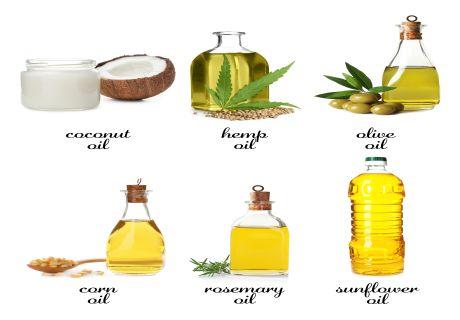Olive oil has become more popular in recent years because of its healthy attributes. Olive oil contains large amounts of vitamin E and vitamin K. Olive oil is also filled with antioxidants. These are nutrients which are believed to protect the body from damage due to environmental factors like smoke and other carcinogens. Olive oil is easily digested, the body naturally absorbs this oil and it soothes the stomach and bowels. Olive oil contains nutrients which protect bones and make calcium absorption easier for the body. Among all of the oils available for cooking, olive oil is the most nutritious.
To compare cooking oils, it is necessary to understand the types of fat involved. There are three key types of fat found in oils. Polyunsaturated, monounsaturated and saturated fats are common in every oil. When compared to canola, peanut or vegetable oil, olive oil contains similar calories per portion size. The difference lies in the type of fat which is present in the oil. Extra virgin olive oil contains mainly monounsaturated fat. This is desirable for good health. Monounsaturated fats are thought to preserve the strength of arteries, reduce the risk of heart attack or stroke and lower cholesterol. Fats are an essential part of any diet, and monounsaturated fats are a wonderful replacement for saturated fats like butter. Polyunsaturated fats, like those found in many vegetable oils, actually aggravate the body's inflammation processes. These fats can cause heart disease and obesity.
Another difference between olive oil and other oils is the extraction process. Extra virgin olive oil must be cold pressed in order to deserve its title. Cold pressed oils are not subjected to high temperatures or chemical processing during their extraction. This means that olives are pressed into a paste by mechanical means, causing the oil to seep from the olives. Many other types of oil, including vegetable oils, have chemical extraction methods. Using chemicals to process oil adds impurities to the oil which are not healthy for the human body. Heat extraction methods also cause damage to the nutrients in many oils. Canola oil and Rapeseed oil are often extracted using heat. This method is quicker than cold pressing, but the oil loses nutrients when heated. When this oil reaches a consumer's kitchen and is heated during cooking, it is utterly lacking in nutrition.
Vitamins within olive oil are not altered by heat or chemicals, making it immensely healthy for cooking. Olive oil also has a relatively low smoke point. This is the temperature at which the oil tends to burn. Cooking at lower temperatures allows the oil to retain essential vitamins. These lower temperatures do not alter the digestibility of the oil either. Olive oil acts as a natural coating for the stomach and bowels and is often used as an aid to relieve stomach pain.
The acid content in olive oil is lower than in most vegetable oils. Canola oil, once made from the rapeseed plant, can contain high levels of erucic acid. This is an acid which is toxic to humans if ingested in large amounts. Canola oil which is made from the canola plants has a lower acid content.
Extra virgin olive oil has one of the lowest acid contents of any oil available. To be considered extra virgin, the oil must have less than 1.0% acid. This makes it extremely digestible and gives the oil an excellent flavor. Virgin olive oil contains less than 2% acid and is less costly than extra virgin olive oil. People on a budget might consider this oil when choosing among the varieties available at most grocery stores.
Olive oil has played a crucial role throughout human history. It dates back to 3500 BC and begins with the cultivation of olives in the Mediterranean. The use of olive oil spans every culture on the planet. With powerful antioxidants, many essential vitamins and superior digestibility, extra virgin olive oil is the most nutritious and satisfying of the cooking oils. When compared to common oil like sunflower, canola or vegetable oil, there is no question that olive oil has the flavor and clarity to create the most delicious foods without adding chemicals or dangerous acids. Extra virgin olive oil is the most versatile cooking oil available to consumers today, and it is the healthiest.

